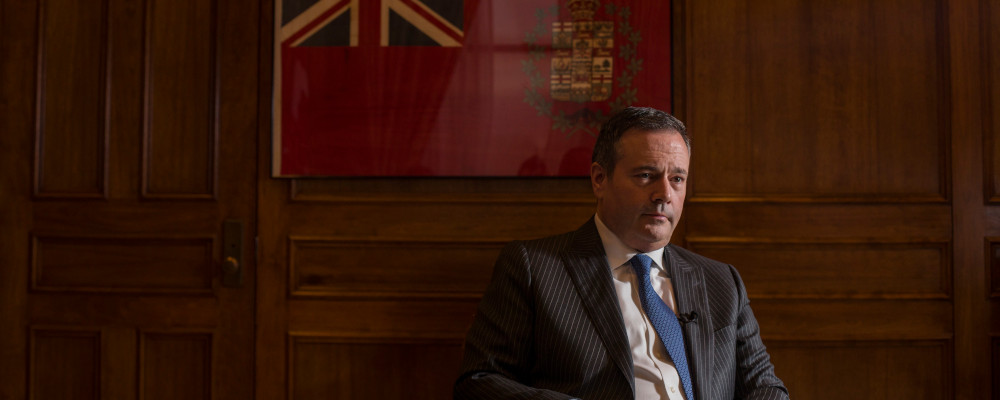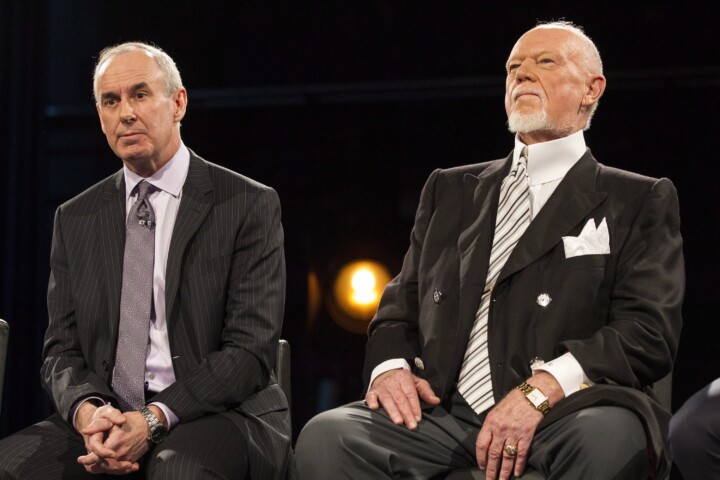This week marks Jason Kenney’s last as United Conservative Party leader and in turn Alberta premier. Party members will choose his successor next week on October 6.
Kenney’s inevitable, if not immediate, exit from politics after more than a quarter century is a natural moment for reflection on his accomplishments, lessons, and legacy.
I traveled to Red Deer last week to interview him at the Canada Strong and Free Network’s regional conference. Our on-stage exchange was before about 250 conference attendees as well as journalists from alternative and traditional media outlets.
I didn’t speak to the premier or his staff about the interview in advance. As I said in my opening comments, this was the conversation that I wanted to have with Jason Kenney.
It was a wide-ranging discussion that covered immigration and identity, the rise of so-called “woke politics”, his government’s policy record, the state of Canadian conservatism, and his own mark on Canadian life.
Kenney demonstrated his strong command of conservative ideas and public policy as well as his deep attachment to Canadian institutions and values. He also displayed a bit of personal reflection about his maturation from a self-described “ideological firebrand” to seeing his conservatism as a disposition more than a dogma.
There were plenty of interesting insights. His observations about the intersection between immigration, culture, and national identity were especially sagacious. As one of the most successful federal immigration ministers in modern Canadian history and someone who has been lauded by conservatives across the Anglosphere as a model on these issues, Kenney certainly has a lot of experience and knowledge to draw from.
His chief point was that a successful immigration policy must combine a firm commitment to cultural and religious pluralism, economic inclusion, and a shared sense of citizenship. These elements are ultimately critical for attracting immigrants, enabling their integration within the economy and society, and maintaining broad public support.
Kenney’s comments about the growing agitation within Canadian conservatism were also notable. He described a shift from the “friendly populism” of Ralph Klein to a “populism with a snarl” in the present political moment. He cited the role of social media as well as the growing detachment of legacy media and the rise of alternative media as key factors in this trend. The upshot was his warning that conservatism must avoid becoming a “caricature of a kind of nasty, angry populism that will lose consistently at the polls.”
As part of this particular exchange, Kenney issued a broadly-reported call for civility on both sides of the political spectrum. As he put it: “I know this is an old-fashioned sentiment, but I actually believe civility is a conservative value. And there is a growing sense of profound incivility. And it concerns me greatly.”
The polarized reaction to our conversation from the Left and Right speaks to Kenney’s point. His comments have been criticized by both sides in a way that seems detached from his ideas or record. The real caricature, in other words, is Kenney himself in the minds of his critics.
The Left’s hostility reflects a common trend in which it rhetorically asks, “Where are all the reasonable conservatives?” while treating a completely conventional, centre-right politician like Kenney as if he’s some radical ideologue because he lowered taxes, cut spending, and believes kids should learn facts in school. The predictable protests and outrage are frankly a bit tiresome. They generally amount to expressions of intolerance made oxymoronically in the name of tolerance.
The negativity from the Right is a bit more surprising. The Kenney government may not have been perfect from a conservative point of view but that seems like an odd measuring stick for conservatives who, if anything, ought to be committed to a basic realism. Conservatism, after all, is about seeing the world as it is as opposed to through a utopian lens.
As I’ve written elsewhere, Kenney’s record is, by any reasonable measure, one of significant conservative reform. His government lowered taxes, cut regulations, reduced spending and balanced the budget, expanded school choice and introduced a new, sensible curriculum, and significantly expanded private health-care delivery. These are ideas and reforms that many of the premier’s right-wing critics previously championed for years. They can’t seem to take “yes” for an answer.
Consider a thought experiment: if you removed Kenney’s name and just put his government’s record to conservatives in hypothetical terms, how do you think they’d respond? I’d bet that they’d be overwhelmingly positive. And for good reason. As I wrote for The Hub in the immediate aftermath of the premier’s resignation: “[this] was the country’s most ambitious centre-right provincial government since the Harris government’s Common-Sense Revolution in Ontario more than a quarter-century ago.”
The main point of tension of course was the government’s pandemic response. My sense is that this essentially involved two groups of Alberta conservatives. The first had legitimate yet debatable criticisms of the government’s messaging and policy choices. It comes down to questions of information asymmetry, trade-offs, and the benefits of hindsight. One suspects that Kenney might even agree with some of these points.
The second group became less reachable over the course of the pandemic. Their opposition to the government’s pandemic policies hardened into an angry obstinance that came to trump facts or debate. Some were understandably agitated by the costs and consequences of extraordinary government restrictions including the loss of family businesses, the temporary closure of places of worship, and the inability to be with aging or dying relatives. Others succumbed to conspiracy theories about the World Economic Forum, Bill Gates, and the vaccines. The point though is that this second group, which ultimately played a key role in the UCP leadership review, became increasingly and irrevocably alienated from the premier and his leadership.
The political problem, as one of Kenney’s chief critics explained to me at the conference, is that this left him inauspiciously wedged between those on his Left who favoured more stringent COVID restrictions and those on his Right who wanted none. It became an unsustainable political position that ultimately cost the premier his job.
There’s no point in relitigating these questions as Kenney’s tenure officially comes to an end. But as he gets set to exit public life, it’s worth recognizing his immense contribution to the country in general and Canadian conservatism in particular. He has left a profound mark as a key architect of the modern Conservative Party and its nearly decade in office, and more recently as the founding leader of the United Conservative Party and a reform-oriented premier. As I said in my concluding remarks, the next generation of conservatives will invariably stand on his shoulders.
Recommended for You

Falice Chin: A tale of two (Poilievre) ridings

Evan Menzies: Calgary at 150: Why is it so hard to celebrate our history?

Howard Anglin: Canada is badly failing the ‘Tebbit Test’

‘We’re winning the battle of ideas’: Conservative MP Aaron Gunn on young men moving right, the fall of ‘wokeness,’ and the unraveling of Canadian identity




